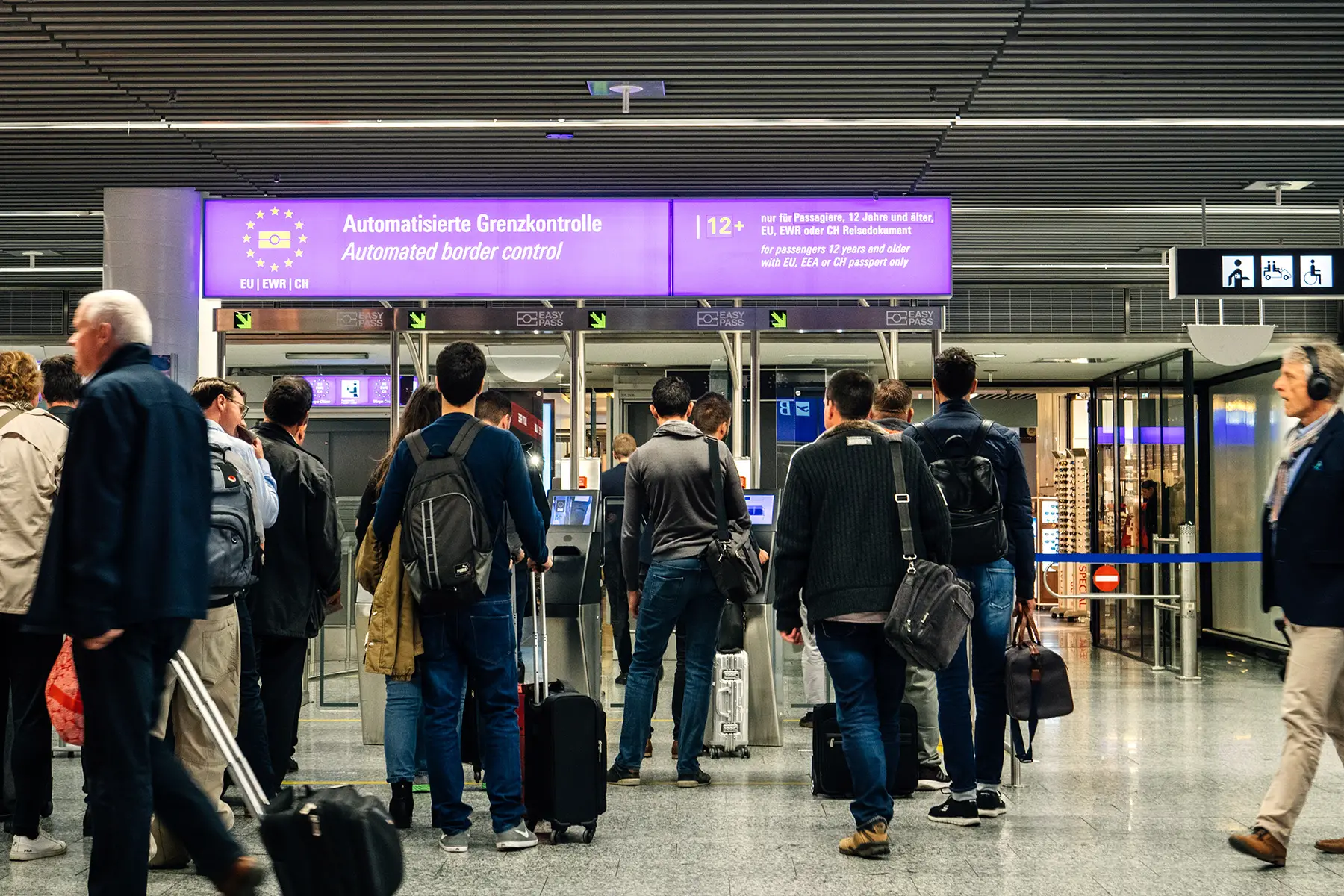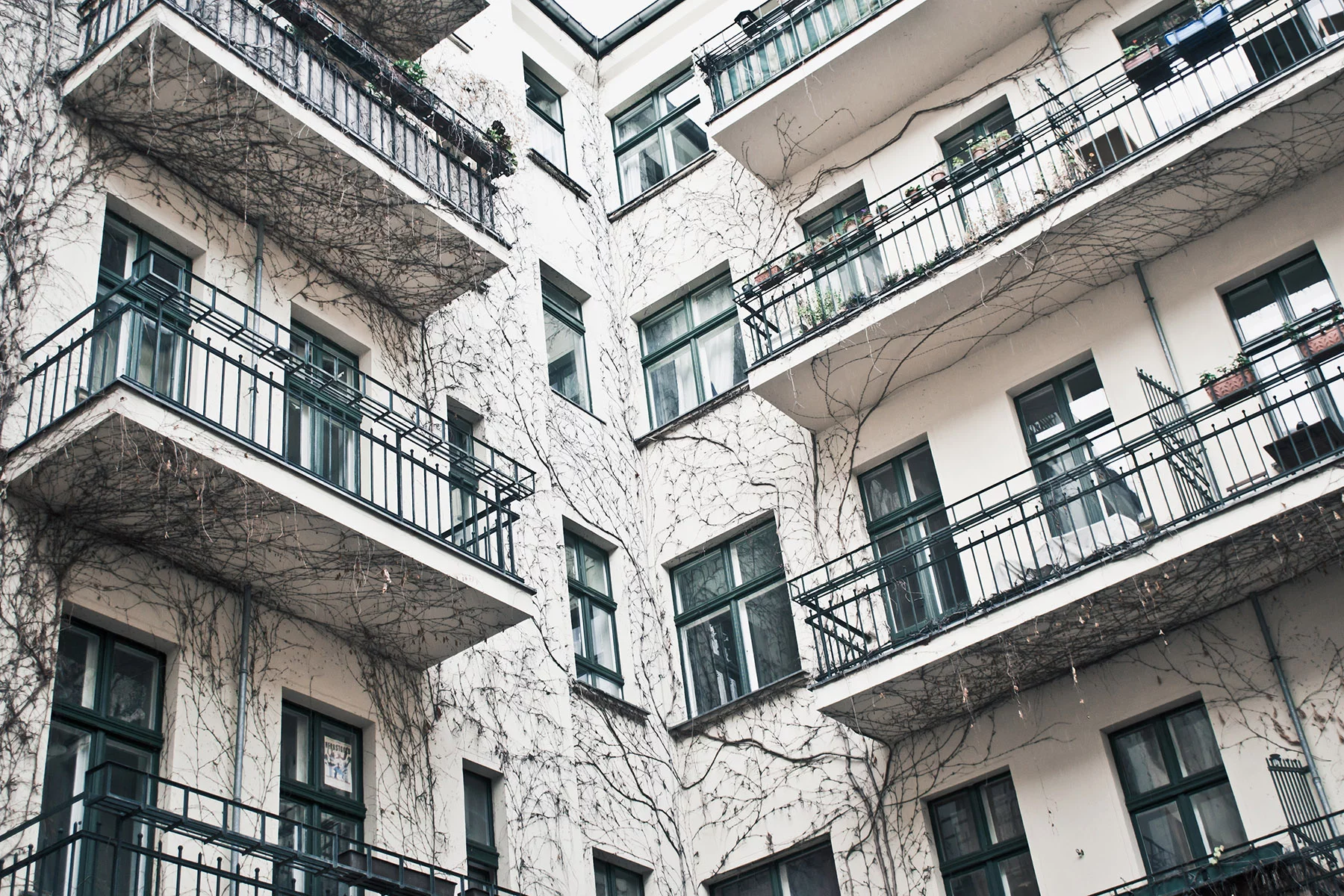Germany’s property market differs from some of its European neighbors, as many residents choose to rent a home rather than buy one. The good news is that there are no restrictions on expats buying German property – you’ll just need a high enough income and be able to qualify for a mortgage.
Let’s dive in:
- Homeownership in Germany
- Should you buy or rent a house in Germany?
- Can expats buy a house in Germany?
- The German property market and property prices
- Costs of buying a house in Germany
- Financing a property purchase in Germany
- Finding a property in Germany
- The process of buying a house in Germany
- Moving into your German property
- Building a new house in Germany
- Buying a new-build house in Germany
- Selling a property in Germany
- Tips on buying a house in Germany
- Useful resources
Wise
Buying a property abroad is a big step and involves important financial decisions. Wise, an international money transfer company, provides specialist support to help you navigate large international transfers and save on exchange fees. Fill out Wise’s online form today to find out how they can assist you.
Homeownership in Germany
Germany has one of the lowest homeownership rates in Europe. Just 50% of residents own their own property, compared to the European Union average of 70%. Germany has long had a unique relationship with property ownership. A 2020 report by the German Federal Bank (Bundesbank) found that the country’s low homeownership rate was primary down to three factors: the high additional costs of buying a property, mortgage interest payments not being tax deductible, and the country’s strong social housing sector.
The German property market is robust, with an imbalance of supply and demand in cities resulting in significant increases in housing prices over the last decade. Low interest rates have also made it easier than before for residents to get accepted for a mortgage.
Should you buy or rent a house in Germany?
Renting in Germany is very common, with many residents opting to rent properties for the long term instead of buying a home. Purchasing a small property and progressing up the property ladder isn’t the done thing in Germany. Buyers instead purchase homes to live in for a long time. With this in mind, renting can be prudent when you first move to the country. This way, you’ll give yourself time to assess your options, find an area you like and carefully consider whether buying is right for you.
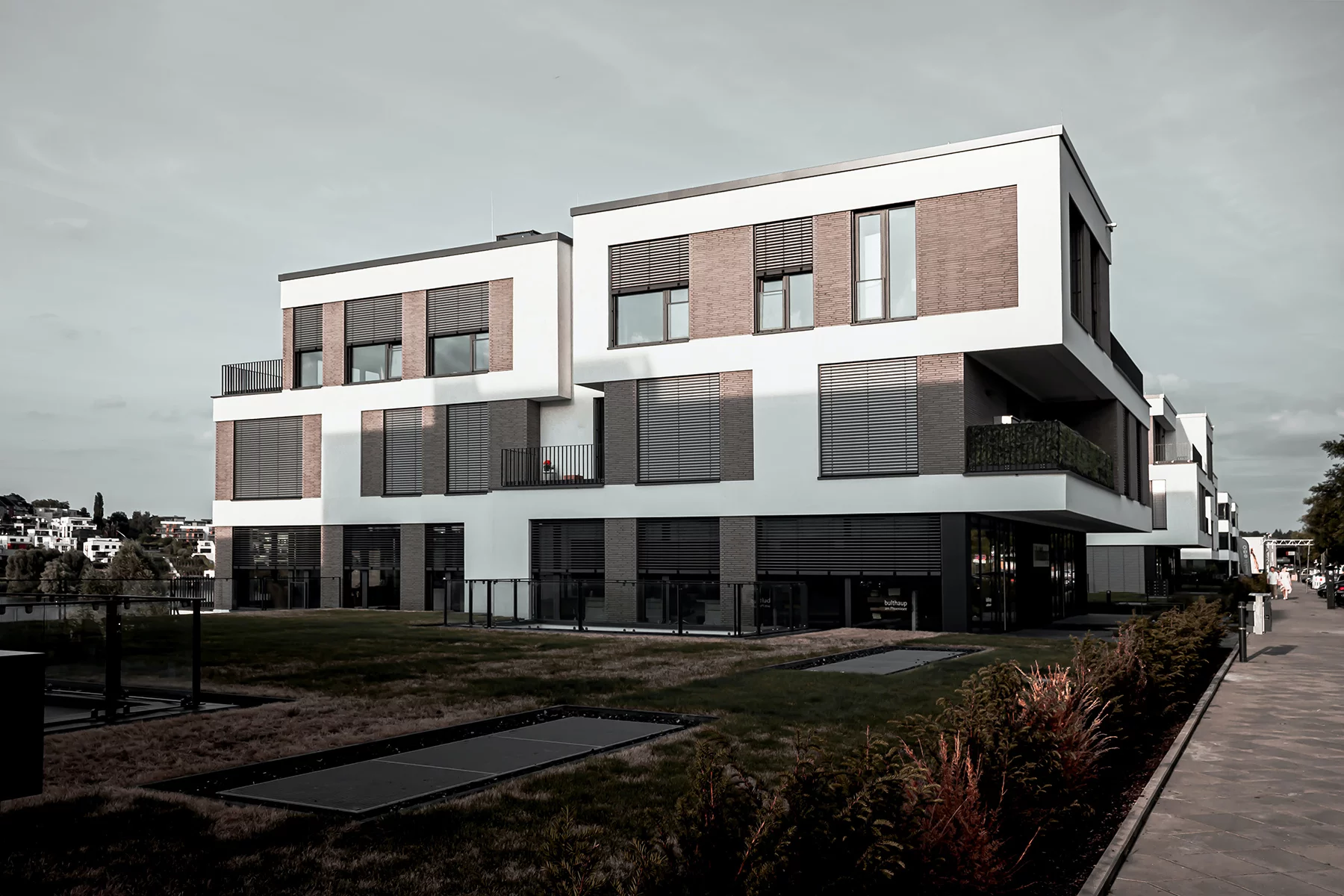
Germany’s rental market can be competitive, especially in major cities where renting is the main form of tenure. In Berlin, for example, around 85% of people rent their home. To rent a property, you’ll need proof of identification, your credit report and evidence of your income. If you’ve previously lived in Germany, you may be required to present a certificate from your landlord confirming you have paid any outstanding rent. Tenants without steady incomes may need a relative or friend to act as a guarantor.
It’s not uncommon for minimum tenancy periods in Germany to be at least two years. Some tenancies run for an indefinite period, with clauses allowing the landlord or tenant to serve notice to end the agreement. Germany’s National Tenants’ Association (Deutscher Mieterbund – website in German) offers support and advice to renters.
Can expats buy a house in Germany?
There are no restrictions on expats buying property in Germany, regardless of whether you’re from an EU or non-EU country.
If you live and work in Germany, you should be able to get a mortgage from a German bank with no additional requirements. If you’re buying from outside of Germany as a non-resident, however, you are likely to need a much bigger deposit.
The German property market and property prices
House prices in Germany vary depending on where in the country you’re looking and the type of property you wish to buy. German house prices have soared during the last decade. Research by the EU commission found that prices increased by 94% between 2010 and 2022, compared to an EU average of 45%.
There have been short-term rises, too. Data from the German Federal Statistics Office (Destatis) found prices increased by more than 10% year-on-year for four consecutive quarters between 2021 and 2022. However, there have been some suggestions of an imminent slowdown. A survey of housing analysts by Reuters in May 2022 resulted in predictions of a 7% rise in 2022, a 3% rise in 2023, and a 2% rise in 2024.
Properties in some German cities tend to be cheaper than in other European countries. Most city properties are apartments, with houses more commonly available in suburban areas. Broadly speaking, rural areas tend to be cheaper than cities.
Research by the property portal Immowelt found that houses in Germany averaged €2,800 per square meter in early 2022, while flats cost €3,200. Saxony was the most affordable place to buy, while Munich was the most expensive.
Buying a house in Berlin
If you’re thinking of buying a home in Berlin or one of its suburbs, you might find you have a limited number of options. Due to the city’s high tenant population, you’re more likely to see properties available to rent rather than buy. Prices in Berlin are higher than the German average but cheaper than cities such as Munich and Frankfurt.
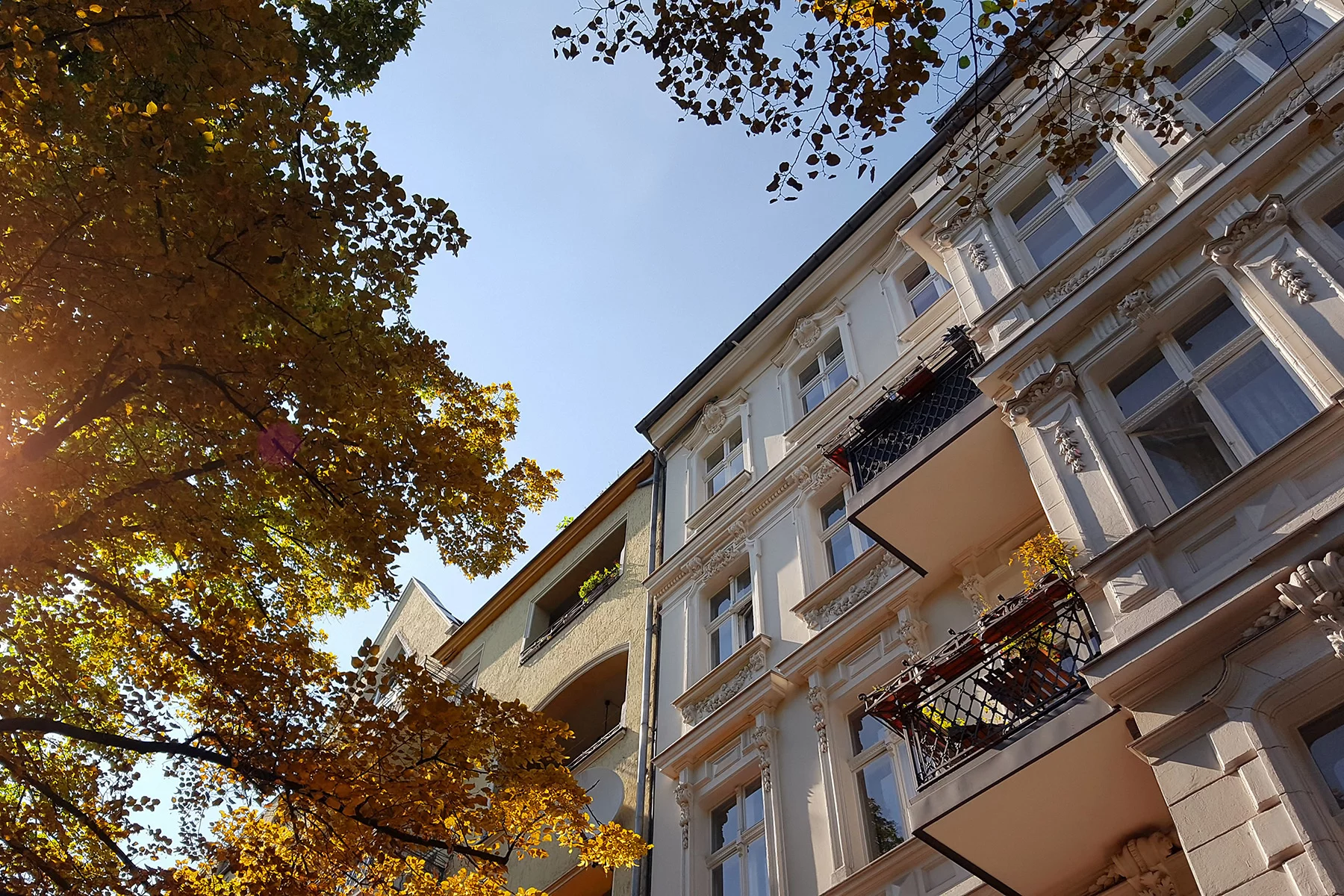
There is a range of housing types in Berlin. In the city center, you’ll find converted townhouses and older apartment blocks to modern high-rise buildings. If you’re looking for a family home, suburbs such as Zeuthen (south of Berlin’s city center) is a popular and more affordable area. To the north of the city, Hohen Neuendorf is a good option for greater peace and quiet.
Buying a house in Munich
Munich is the most expensive city to buy a home in Germany. As well as high house prices, the city has a high overall cost of living. In the ECA’s annual Cost of Living report, Munich ranked as the 16th most expensive European city for expats. These high costs are balanced, however, by the excellent quality of life offered by the Bavarian capital. As with Berlin, apartments make up much of Munich’s housing stock in the city center, with larger homes more common in the suburbs.
Costs of buying a house in Germany
There is a range of fees you’ll need to be aware of before buying a home in Germany. Overall, these can add up to around 10% of the property’s purchase price, and in some cases, even more.
Property transfer tax (Grunderwerbsteuer)
Property transfer tax is the highest additional cost of buying a home in Germany. You’ll usually need to pay between 3.5% and 6.5% of the purchase price.
The exact rate will vary depending on which state you live in. Hypofriend provides a list of the latest rates. In Berlin, you pay 6%, and in Munich, 3.5%. Brandenburg, Saarland, Sleswig-Holstein, and Thüringen have a rate of 6.5%, the highest in the country.
You must pay property transfer tax within four weeks of finalizing your purchase. Once you’ve paid this tax, the transfer of ownership of the property can be registered in the German land registry (Grundbuch). If you’re having difficulty with taxes, it’s worth contacting a professional or using an online platform to simplify the taxation process, such as Taxfix or Wundertax.
Notary and land registration
The notary plays an important role in the German home-buying system. Fees are set by law and vary depending on the property value. You can expect to pay around 1.5%–2% of the property’s purchase price. This includes the cost of registering the property with the land registry.
Estate agent fees
Homebuyers in Germany usually split the estate agent (Immobilienmakler) fees with the seller, under a law introduced in 2020. Estate agent fees vary significantly depending on the state, the value of the property and the specifics of the estate agent’s contract. Fees can be as high as 6% plus VAT – totaling 7.14%, or 3.57% each for the seller and the buyer.
Financing a property purchase in Germany
To buy a house in Germany, you’ll usually need to take out a mortgage (hypothek). You don’t need to be a German resident to get a mortgage, but if you don’t have resident status, you might need a bigger deposit. German banks that offer mortgages include:
When contacting banks in Germany, it’s worth asking if they have an English-speaking staff member who can help you.
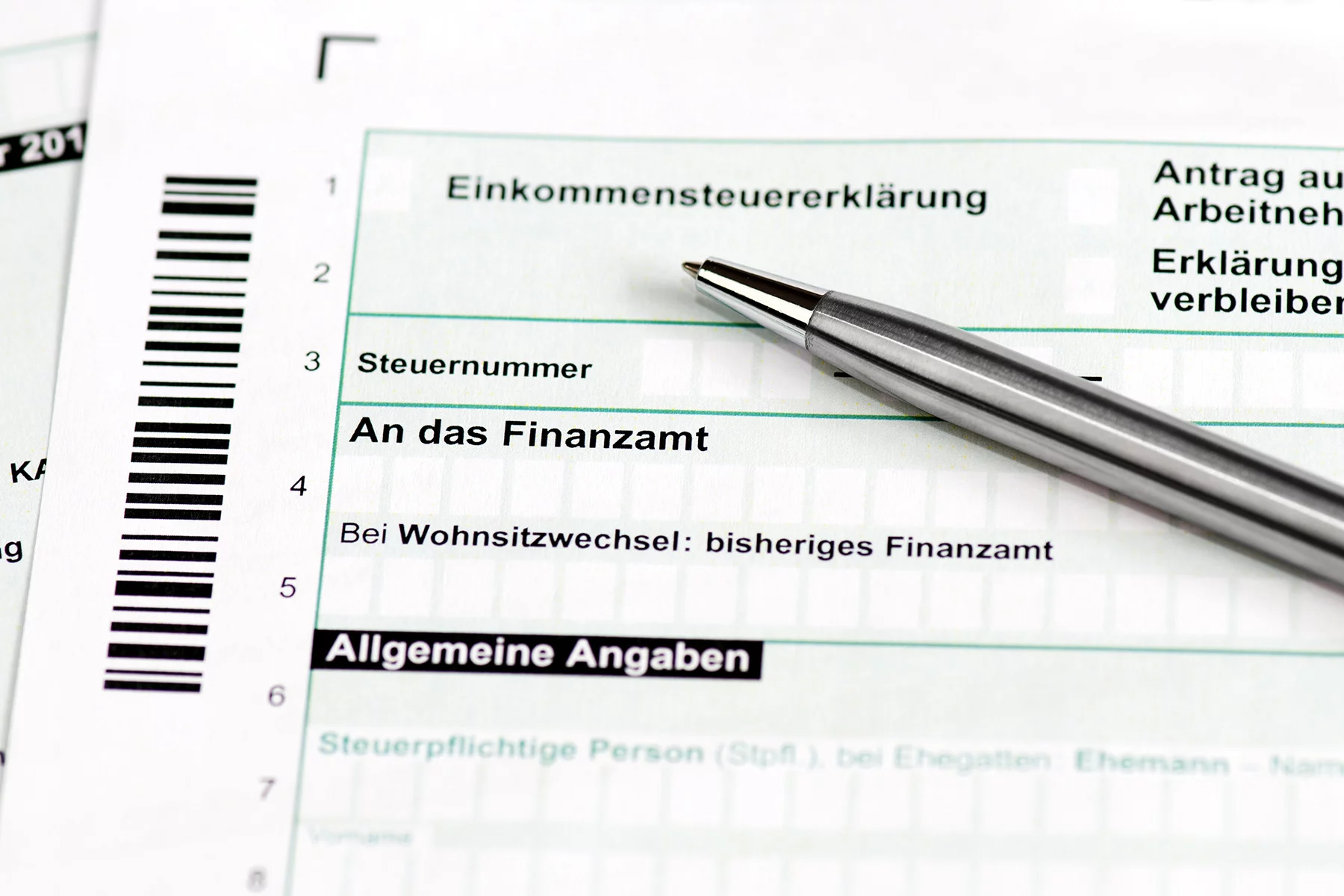
Before formally applying for a mortgage, it can be helpful to get a mortgage agreement in principle (pre-approval) from a bank. This is an informal agreement, but it will indicate how much you can borrow, and make it clear to sellers that you’re serious about buying a home.
It can be possible to get a mortgage without an up-front deposit, but many buyers in Germany will need to pay some form of downpayment – 20% is common. If you take out a mortgage with no deposit, you may need to pay a much higher rate. If you don’t live and work in Germany, you might need a deposit of at least 40% of the property’s value.
Hypofriend
Buying a home in Germany? The certified German mortgage broker Hypofriend can help. They combine advanced algorithms to tailor the right mortgage product to your personal circumstances. Unlike most comparison websites, they do not solely focus on the cheapest product, but on the product that is right for you, ensuring long-term financial security.
Some banks will require you to earn a minimum amount per year to get a mortgage (for example, €20,000), and lenders will usually require that your mortgage repayments won’t be more than 35% of your monthly income.
Most homebuyers in Germany choose fixed-rate mortgages. This usually involves the interest rate remaining the same for a set amount of time. Many borrowers fix their rate for 10 years. After 10 years, you can then refinance the loan at whatever the market rates are at that time.
Finding a property in Germany
The majority of properties in Germany are listed by estate agents. Your first port of call, however, might be to look at an online property portal, where you can find homes for sale from a range of local agents.
Generally speaking, estate agents sell the property on behalf of the vendor, but it is possible to appoint your own agent to help you with your property search if you so wish. This will come at a cost but give you greater insight into the local property market and help you get ahead of the competition when properties become available. Make sure any agent you appoint is part of a professional organization such as the IVD.
There are many property portals in Germany, from those that feature all types of property to those specializing in specific types – for example, shared apartments or homes listed directly by sellers. The three biggest portals are as follows:
Properties in Germany won’t usually have ‘for sale’ signs in their gardens. Weekend editions of local and regional newspapers contain real estate listings, which can be useful when searching for properties.
The process of buying a house in Germany
Before searching for a German property, it’s a good idea to get an informal mortgage agreement in principle (pre-approval). Once you’ve got this, you’ll generally take the following steps to buy a home.
Making an offer
Once you’ve found a property, you’ll make an offer through the estate agent. If the offer is accepted, you will be asked for a reservation fee (0.5% to 1% of the property’s price). When you pay this, the property will be taken off the market. The reservation period lasts two or four weeks, giving you time to finalize your mortgage. If you decide not to buy the property, you may lose the reservation fee.
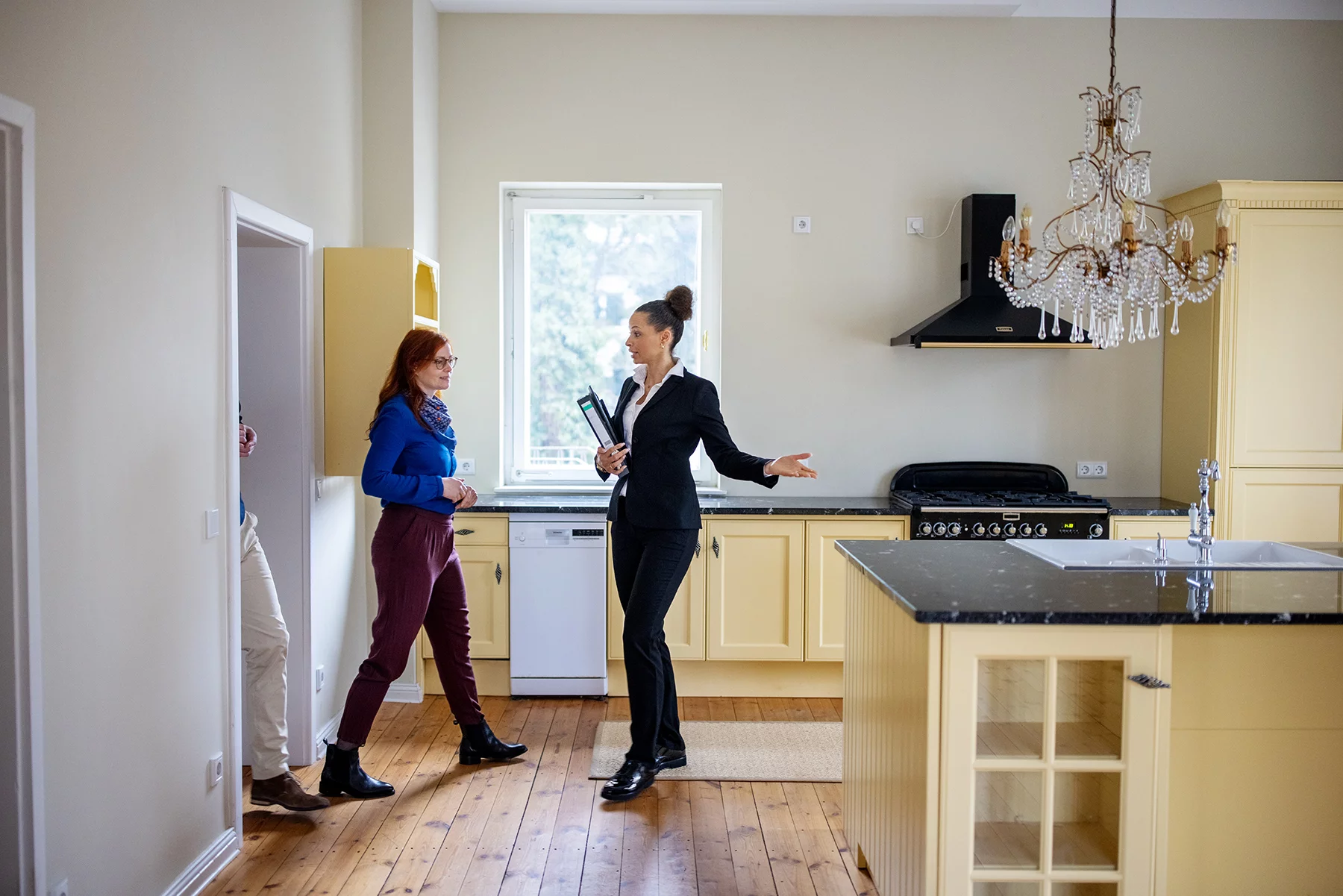
If you want to get an independent property survey to check for any problems with the building, you should do this before signing the contract to buy the home. The Royal Institute of Chartered Surveyors (RICS) provides a list of surveyors in Germany.
Finalizing your mortgage
Now is the time to finalize the specifics of your mortgage (e.g., how long you will fix your rate for). This can either be done directly with your chosen bank or via an independent mortgage broker if you’ve appointed one. Either way, you’ll need to obtain a series of documents from the seller confirming the property’s details, as well as evidence from your side confirming your identification and income. Independent brokers in Germany include:
- Hypofriend – also provides an online mortgage calculator
- LoanLink
Once you’ve submitted your application, allow the mortgage lender up to 10 days to process it. This can progress more quickly, but delays are possible if the lender needs to ask for extra information or conduct their own property valuation.
Signing the contracts
You and the seller will agree on a notary to progress the legal elements of the transaction. The notary will draft the final purchase contract. Once you’ve received this, there is a 14-day cooling-off period before it can be signed. You’ll then attend the notary’s office in person with the seller. If you don’t speak German, you will require a translator to come to this meeting with you.
The notary will read the contract, and both sides can ask questions or suggest edits. Once finalized, the notary will provide a priority notice to the land registry, registering an intention for the property to be transferred into your name.
Organizing your finances and paying fees
Once the transaction has been notarized, you’ll need to pay some of the fees listed above. The estate agent’s fee will likely come first, followed by the notary’s fee. Some weeks later (the exact time frame varies), the notary will set a date for you to transfer the full purchase amount to the seller.
If you have income from different countries or in various currencies, this may seem like a more complicated process. However, you have many options when it comes to purchasing property in Germany.
If you currently live in the country, you can open a domestic bank account. If you do not, you may want to speak to a financial advisor or consider a specialized money transfer service that can help you send money from a bank account outside Germany to purchase your property.
Wise, for example, has a specialist team to help move large transfers abroad and can save you money on exchange fees.
Final arrangements
You won’t officially own the property until the land registry transfer is complete, which can be some weeks after you get the keys and move in. By now, you should have received your transfer tax bill, which must be paid within four weeks.
Moving into your German property
Insurance
If you’re buying a house in Germany, you’ll usually need buildings insurance (wohngebaudeversicherung) to cover the cost of any damage to the structure of the property – for example, due to fire or flooding. People buying apartments may not need this coverage, as it should be shared between all owners in the building and included in your service charge (Hausgeld). Contents insurance, which offers protection against damage to or theft of your belongings, isn’t required by law, but you may wish to purchase this anyway for extra peace of mind.
Mortgage providers may require you to take out insurance to cover your mortgage repayments if you fall seriously ill or die. This isn’t always necessary, but it may be required if you are the sole earner in a family or if you’re borrowing at a high loan-to-value level.
Utilities and telecommunications
Once you’ve moved into your new property, you’ll need to take over the current contracts with utility providers. For things like gas and water, there’ll be an existing service that you can transfer into your name. However, you can, of course, shop around to see if a better deal is available from another provider. You’ll usually need to set internet and TV services up yourself, but you can also search online for contractors through platforms such as TaskRabbit. Prioritize setting up your broadband, as the provider may need to make an appointment for an engineer to visit your home.
Building a new house in Germany
It is possible to build your own property in Germany. One of the main benefits of building your own home is that you’ll only pay transfer tax, notary, and agent fees on the value of the land you purchase, rather than the finished property.
To build your own home, you’ll need to find a suitable plot, get a building permit (Baugenehmigung) from your local building authority, and hire an architect to design the home. Building your own house is a very time-consuming and involved process, so it’s important to take advice and carefully research your options before rushing in.
Buying a new-build house in Germany
New-build properties in Germany are usually bought directly from a developer. Many new homes in Germany (especially apartments) are sold off-plan before the building has actually been completed. Before buying off-plan, you’ll need to research the developer’s background. This will give you the confidence they will deliver the project on time and to a good standard.

New-build homes are usually paid for in installments agreed between you and the developer. For example, you might pay one installment when the build starts, another once the walls and foundations are in place, and the rest at other moments during the process. It is possible to get a mortgage to buy a new-build home. Some lenders offer specific products where the loan is paid in installments in line with the build completion.
Selling a property in Germany
If you’re selling a house in Germany, the first thing you’ll need to do is prepare the property for sale and appoint an estate agent. Agents should be able to give you a clear indication of the value of the property, but it’s worth getting several valuations before agreeing on an asking price. It is possible to sell a property privately, but this can be a time-consuming process, especially if you get a lot of inquiries from buyers.
You’ll need to prepare a series of documents before listing your property for sale. These include a floor plan (Grundriss), land registry extract (Grundbuchauszug), energy certificate (Energieausweis), and building permit (Baugenehmigung). If you’re selling an apartment, you’ll also need a declaration of how the building is divided up (Teilungserklärung) and notes from the most recent owners’ meetings.
In addition to estate agent fees, you may need to pay mortgage termination fees if you’ll be repaying your mortgage within its fixed term.
Tips on buying a house in Germany
- Thoroughly research areas before settling on a place to buy a home. Consider renting first to see if you like the location.
- Analyze house prices and property types in the area before starting your search. If you’re thinking of buying a property that you’ll need to renovate, find out about the local building rules and regulations.
- Visit a potential property at different times of the day to get an idea of things such as noise pollution and traffic levels. Consider taking a friend along for a second opinion.
- Find out about your mortgage options in advance. Explore what is on offer from different banks to find the best deal and consider getting a pre-approval.
- Shop around for a notary and surveyor (if required). Don’t necessarily choose the ones recommended by the estate agent.
Useful resources
- Destatis – latest property market information
- Deutscher Mieterbund – German tenants association (website in Germany)
- EU Commission – house price research 2010–2022


